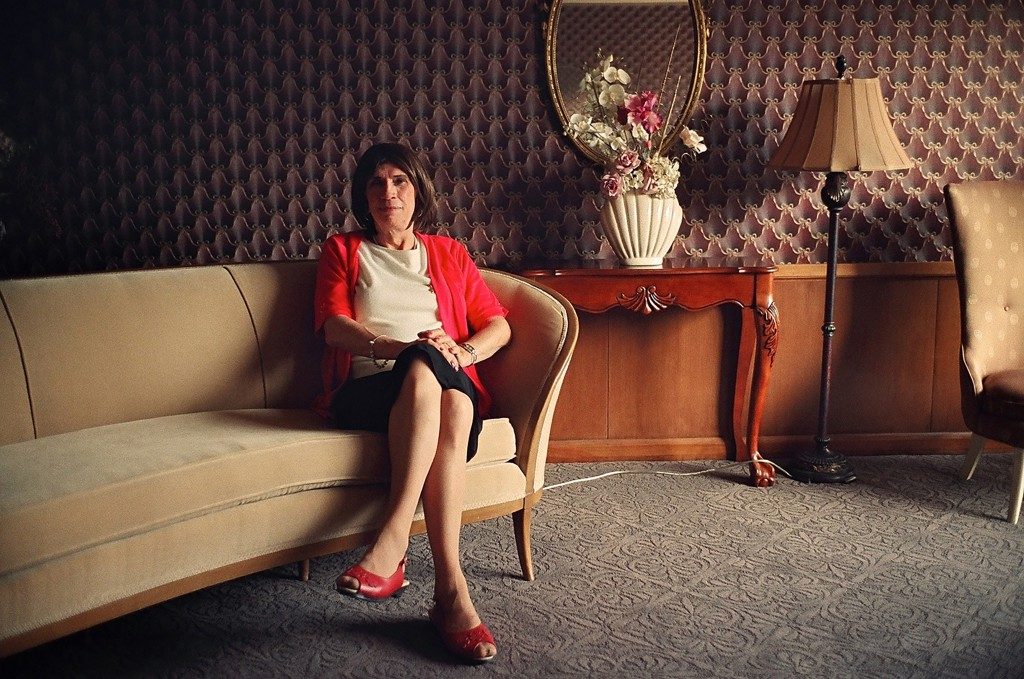Jessica Dimmock is an award-winning director and cinematographer. She is the recipient of the 2014 Infinity Award for Photojournalist of the Year from the International Center of Photography and the 2013 World Press Photo top prize as the director and cinematographer of the web feature “Too Young To Wed.” In 2010, Dimmock won Kodak’s Best Cinematography Award at the Hamptons International Film Festival for “Without,” which she also co-produced. The film received an Independent Spirit Award and was nominated for a Gotham Independent Film Award.
“The Pearl” will premiere at the 2016 DOC NYC film festival on November 16. The film is co-directed by Christopher LaMarca.
W&H: Describe the film for us in your own words.
JD: “The Pearl” is an intimate cinematic profile of four transgender women that come out for the first time in their senior years. It takes place in the Pacific Northwest, a part of the country that has a strong ideas about what defines masculinity.
The film follows the women over the course of three years as they bravely step out into the world as who they truly are for the first time. After decades of hiding from those closest to them, this is a story not of transitioning into womanhood, but rather exploring what it means to leave living as a man behind.
W&H: What drew you to this story?
JD: I stumbled upon this story very much by accident. Some years ago I went hiking in the northernmost town of Washington state, and checked into a large hotel for the week. Standing on the balcony of my room I saw women with larger builds and wide shoulders embracing, and others bringing suitcase after suitcase out of the car. I had accidentally walked into the center of the Esprit Conference, an annual event for transgender women in the middle age and senior years, many of whom are still in the closet.
In talking to these women I was really struck by their bravery and also their isolation. After living their entire lives as men, they had developed entire identities as male — their families, spouses, friends, and places of employment all expected them to be something that they are not. And with that comes a terrible sense of not being known.
W&H: What do you want people to think about when they are leaving the theater?
JD: We really felt that this story was about falling in love with the characters that we followed, and we hope that people leaving the theater will be similarly in awe of them.
And for us, we really saw the film as being less about transitioning into becoming a woman and more about what it means to leave [a male identity behind]. After all of those years of placing masculinity on themselves, almost as a shield, what does it mean for them to remove this cloak?
W&H: How did you get your film funded? Share some insights into how you got the film made.
JD: We made our film entirely through the financial assistance of grants and an investment from Impact Partners.
W&H: What does it mean for you to have your film play at DOC NYC?
JD: Because my co-director and I are both from New York, and I’m from New York City, it’s incredibly meaningful to share the film on home turf. There are many friends of mine who have not seen the film yet, because while I could have shared a link with them, it felt so essential that they see it with an audience and at a theater.
I’ve been going to films at IFC for years and years so it’s incredibly meaningful to have the film playing there.
W&H: Name your favorite woman-directed film and why.
JD: “The Virgin Suicides” by Sofia Coppola. The mood of female preteen melancholy, sadness, and beauty is so beautifully articulated.
W&H: Have you seen opportunities for women filmmakers increase over the last year due to the increased attention paid to the issue? If someone asked you what you thought needed to be done to get women more opportunities to direct, what would be your answer?
JD: I’ve definitely seen increased opportunities for female directors in the form of female-based initiatives, but it’s definitely difficult and challenging to be taken seriously [as a woman] in [the industry].







